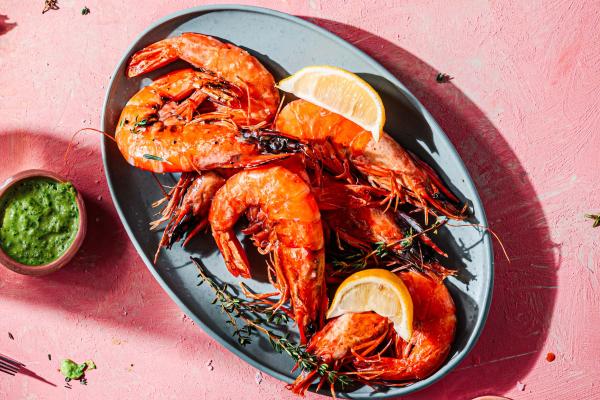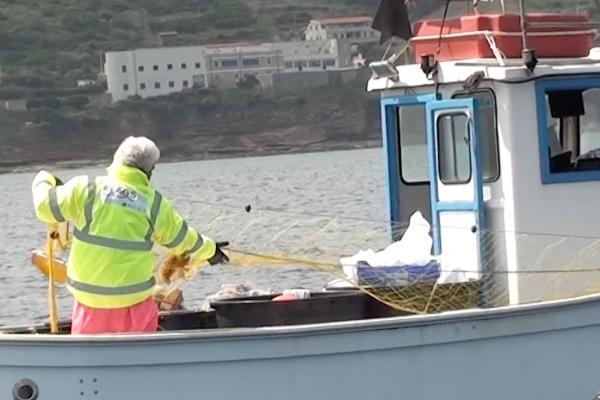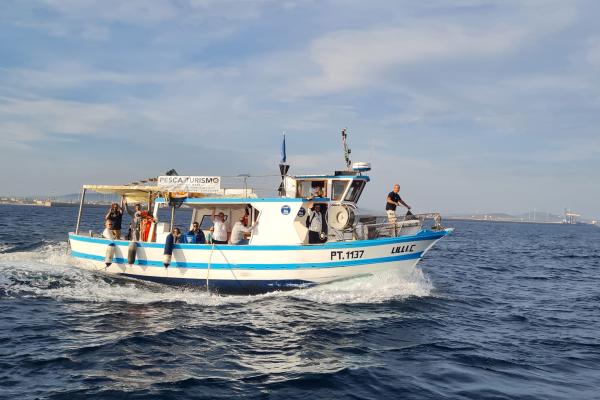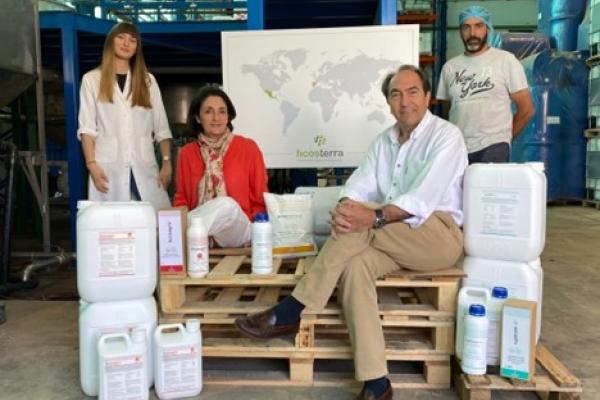
Plastic pollution in our ocean has devastating consequences for biodiversity, fisheries, tourism and coastal communities. EU has taken many steps to address this problem, either by direct legislative initiatives, by awareness-raising campaigns (such as the ongoing #EUBeachCleanup), or by supporting innovative projects tackling marine plastic pollution. The EU-funded project ‘STRANDET’ is one of those projects, contributing to recycle a large amount of plastic collected on beaches in north-west Jutland, Denmark.
The STRANDET ('stranded') project collects plastic from local beaches, recycles it and turns it into fins for surfboards. Founded in 2018, STRANDET is based on Anne Julie Müller’s and Jens Wilhelm Jørgensen’s desire to make an active and local effort to address marine plastic pollution. In 2019 they transformed an old petrol station in the village of Nørre Vorupør into the STRANDET headquarters: a sea plastic workshop and coffee shop. They wanted to make the Danish west coast a cleaner place, free of plastic and other kinds of waste. At the same time, Nørre Vorupør (within Denmark’s Thy national park) is a watersports mecca in Denmark, frequented by surfers – an ideal location for developing such an initiative.
At first, the founders used their own machines to produce simple products like keychains, phone cases and small bowls. In 2019, however, they collected far more ocean plastic than they could recycle themselves. They therefore decided to implement a project that makes it possible to recycle ocean plastic in a larger and more commercial production chain. They expanded the business by upscaling and streamlining the recycling and production of new products.
This project concerns the production of fins for surfboards, and it created new business opportunities. The aim was to show how ocean plastic can be part of a circular economy where it replaces virgin plastic and creates products with good quality and functionality. The EU funding, which was channelled through the Fisheries Local Action Group (FLAG), was used to elaborate the project, develop the production tools and give them visibility. Julie is the responsible for coordination, business development and CO2 accounts. She has worked with sustainable business development, green transition, and plastic pollution in both local and global perspectives. Jens has a background as a campaign project manager in a large humanitarian organisation. He is responsible for disseminating knowledge about the plastic problem, and for product development.
Through a combination of design, recycling, waste management and new production, the partners are setting up a sustainable business, while building collective awareness on plastic pollution, as stated in STRANDET mission: “Keeping the beaches along the West Coast free of plastic and highlighting plastic pollution locally as well as globally”. Every year, several hundred schoolchildren visit the workshop, where they learn about the recycling of plastic and help to produce small plastic objects. The project holders also participate in events on how green transition can be incorporated into entrepreneurship.
The project’s product development means that plastic from the beaches could be used as raw material by local production companies. Work carried out within the project follows a short process that is locally anchored, resulting in minimal footprint and further development of the local circular economy. Among the primary partners of the project in fact, there are a local company that specialises in producing plastic moulds and prototypes, and a local plastics manufacturer. The project functions as a knowledge hub and a lighthouse in relation to the processing and recycling of marine plastic.
The project partners would not have had the financial resources they needed to develop their idea and make commercial quantities of surf fins from sea plastic. The support of the EU has been instrumental to the success of the project, bringing tangible benefits to the local community, the ocean…and the surfers.
Did you like this story?
Then check out the September episode of Euronews OCEAN on maritime security
Keep informed about the project
Website
https://strandet.io/forsiden/vi-er-strandet/
Social media
- Facebook : https://www.facebook.com/strandet.lab/
- Instagram: https://www.instagram.com/strandet.lab/
- LinkedIn: https://www.linkedin.com/company/strandet/
Video: STRANDET: turning the tide on plastic waste in Denmark
Details
- Publication date
- 29 September 2022 (Last updated on: 6 December 2023)
- Author
- Directorate-General for Maritime Affairs and Fisheries




